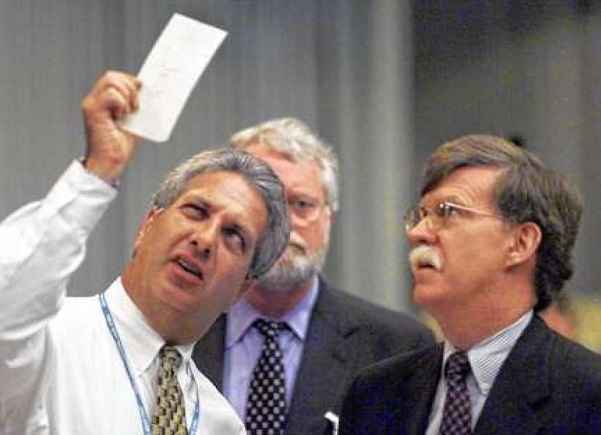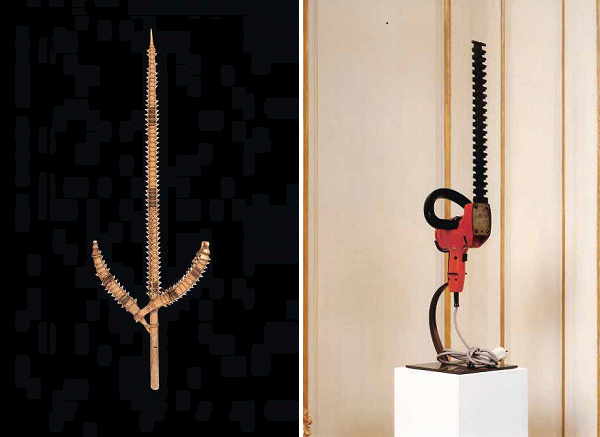[jotted by Lynn C. Rees]
Listening to this presentation by Vanya Eftimova Bellinger on her biography of Marie von Clausewitz (helpfully titled Marie von Clausewitz), one quick parallel and one liberation (long in coming) came to mind:
Quick parallel:
As editor of On War, Marie deliberately left On War unfinished.
Carl’s unforeseen death on November 16, 1831 from the cholera left a jumble of papers instead of a book. Marie was left to assemble them into publishable form. Received wisdom long held that Marie’s editorial activity was passive, with the heavy lifting and hard thinking left to her brother Friedrich or some other dude among Carl’s comrades.
Bellinger’s research, based on newly recovered letters Marie and Carl exchanged over their 21 year marriage, reveals the received wisdom as received nonsense: Marie was intimately involved in both the development and detail of Carl’s ideas. Some of Carl’s ideas may in fact be Marie and Carl’s ideas or even Marie’s ideas (though, as a devoted couple, of one mind and one heart, where did one end and the other begin?). She was only qualified editor for Carl’s work other than Carl.
Despite this, she chose to leave it largely as Carl left it, uneven, unfinished, unpolished, and frequently deeply divided against itself. Marie saw Carl’s book, even unfinished, as the greatest work on the study of war ever written. Yet she felt that, providentially perhaps, its incomplete and unsettled state made On War more of an invitation to advance the study of war beyond even her beloved Carl than The One Book On War To Rule Them All. The large blanks left in On War are not, as long claimed, artifacts of a loving but inexpert widow, hopelessly lost among the Great Thoughts of a Great Man. They are roads so wide that the future can move through them with ease, a lasting tribute by a woman of vision to a man of vision she understood better than the small-minded historians (usually dudes) left in her shadow.
This reminds me of the late Col. John Boyd’s slides and the complaints some make that the Colonel didn’t leave behind a comprehensive treatise on war like, um, On War. The Colonel lived as he preached: he was against the formation of orthodoxies, even, and especially, Boydian orthodoxies. He believed they contributed to the closed thinking that Boydian-flavored tactics sought to create in the enemies they targeted. A closed enemy mind is prey to its own illusions. Left without lifelines to reality, a mind’s mental entropy accumulates until it consumes itself and collapses into fatal disorder. Orthodoxy belongs to the same family of tactics, only now the victim is yourself. Orthodoxy is mental suicide.
The Colonel was not going to be a military Aristotle. He was not going to leave behind a body of work so all-encompassing that it euthanized contrary thinking for the next two millennia. So he left behind a bunch of slides, as suggestive in what they don’t say as in what they do say. Filling in the blanks is left as an exercise to viewer.
This has not prevented the rise of a class of Boydian true believers, picking over each slide in search of their master’s Original Intent. This is not the Colonel’s fault: as a peddler of interesting stories, he could no more prevent the rise of the Church of St. John the Boyd than Marie could prevent the rise of the Church of St. Carl the Clausewitz. To herd is human, to stand alone is divine. Yet Marie, like the Colonel, and, perhaps, like Carl, left room for the creative spirit to roam in spite of the best efforts of men of the straight path to restrict it to the Wise and Inscrutable Colonel’s Secret Original Recipe. As the Colonel was a Boyd but not a Boydian, Marie was a Clausewitz but not a Clausewitzian.
Liberation, long in coming:
Marie’s influence manifests itself most strongly in those chapters attributed to the mature Carl. This means Book 1 Chapter 1, whether with its vintage Cold War Howard-Paret gloss or not. The insight, even the phrasing, of Carl’s famous “War is the continuation of politics with the admixture of other means”, may have originated with Marie.
Marie, born Maria Sophie, Countess von Bruhl, came from a higher social class than Carl. By most measures, she was a far better politician than Carl. The progress of Carl’s career depended as much on Marie as it did on more historically prominent patrons like Scharnhorst and Gneisenau. Marie was a lady-in-waiting to multiple Hohenzollern princesses. She was involved and influential in the court politics of Prussia. Such politics may bear a closer resemblance to the social politics portrayed in the novel’s of Marie’s English contemporary Jane Austen than to those portrayed in conventional political history. Yet they may exercise as much, if not more, influence as the brow furrowings of serious statesmen.
Today’s received wisdom is that women were entirely absent from a substantial role in politics until the enlightenment of the late twentieth century gave its institutional validation on the role of women in politics by granting them official line titles. This received wisdom belittles the power that women whose lives or times bore little resemblance to those of a white Anglo-Saxon Protestant-flavored careerist have exercised through the ages. Their politics may seem unimportant, even quaint. Yet they have exercised a sway that has gone largely overlooked by later historians.
In this, 1960s-flavored women’s history ironically often shares the biases of the most male chauvinist historians of the past. Because it was not labelled or institutionalized as capital P politics, it must have been unimportant lower case p politics. Marie knew otherwise and knew otherwise better than Carl. She was established in the highest corridors of power. She knew how the interactions of men and women in high places and high proximity fed the sausage machine that led to war and peace and took lives. She saw how war was the continuation of politics, her politics, capitalized or not, with the addition of other (usually violent) means.
I suspect later Prussian and German military thinkers sensed this. Moltke’s nose curled at any interference in war making from civilians, even those with facial hair more formidable than his own like Bismarck. He may have sensed that, behind Bismarck, there were forces that would have stymied Wilhelm I’s Paris 1870, a reunion tour that rolled on to cataclysmic crescendo at Berlin 1945 after unscheduled stops at Marne 1914, Verdun 1916, and other blood-stained venues. Moltke may have sensed the feminine infiltrating his manly clubhouse. Politics is a game both men and women play. Acknowledging the role of politics in war may have led to even Moltke having to acknowledge that, GASP!!!, women might acquire a role in war as a logical continuation of their role in politics. That could have led to even more civilians stifling Moltke’s fun.
The horror.
And here, perhaps, is Marie von Clausewitz’s most compelling legacy: liberation of the study of war, and, perhaps ultimately, its governance, from its sole reliance on masculinity.







